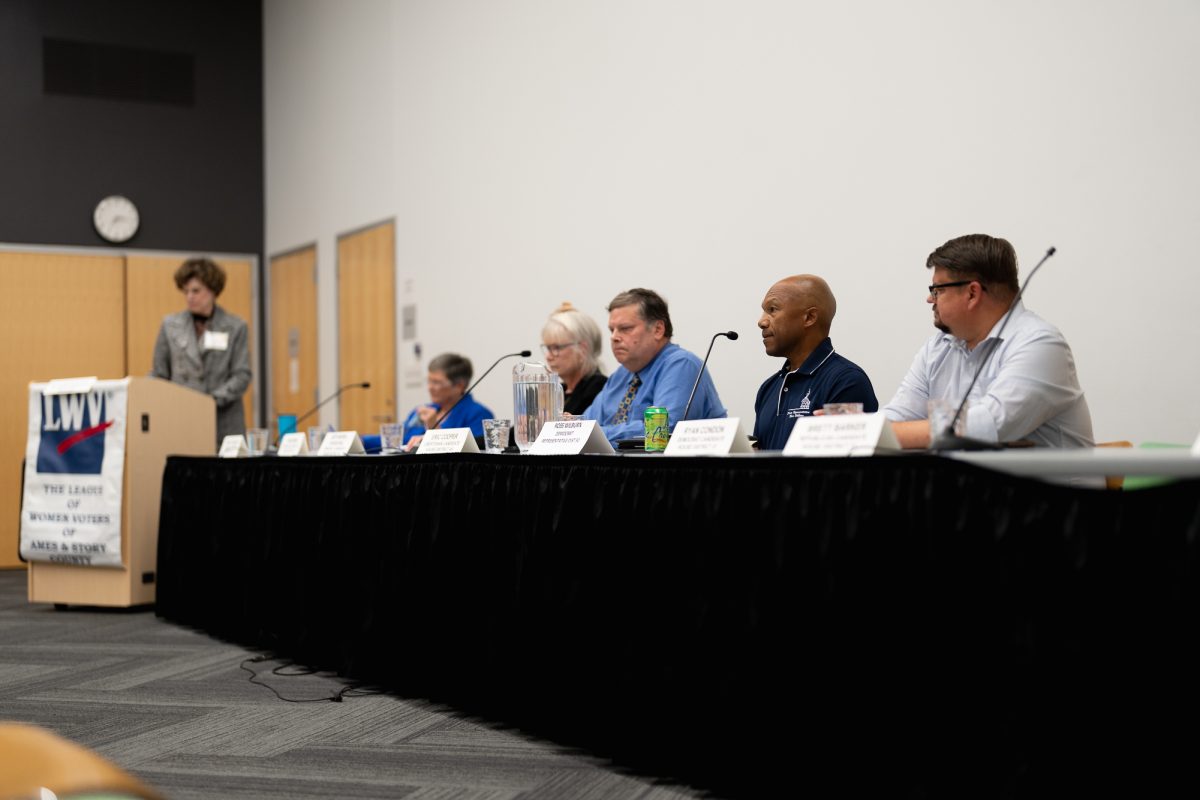Primary politicking heats up
February 22, 2000
The race for the Republican presidential nomination continues today in Michigan and Arizona, where candidates Texas Gov. George W. Bush, Arizona Sen. John McCain and former ambassador Alan Keyes will compete in two more state primaries.
Although a McCain victory in his home state is considered inevitable, ISU politicos said the Michigan primary will be one of the most important tests yet of the senator’s viability.
Keyes is also still in the race, but with a 5 percent take in South Carolina, many pundits consider him to be a nonfactor in the primaries.
“This is a key race for McCain,” said James Hutter, associate professor of political science. “If he puts together a string of losses, it doesn’t take long at all until he’s on the ropes and out of the picture.”
GOP activist Steve Skutnik, junior in physics, said if Bush wins in Michigan, it’s curtains for McCain.
“McCain would need a miracle to stay in the race [if he loses Michigan],” Skutnik said.
Glenn Richardson, temporary assistant professor of political science, said if Bush wins again today, it will serve as a “call from the Republican Party [to McCain] to stop bashing on our nominee.”
While McCain will be attempting to revive his stalled campaign, Bush will try to build on the momentum he gained with his 11-point win in Saturday’s South Carolina primary. Almost all polls conducted in Michigan have shown the candidates locked in a statistical dead heat.
Richardson said he thought the surging McCain campaign might have actually strengthened the Bush camp.
“Right now, it looks like Bush is doing well,” Richardson said. “I think the strength of McCain’s candidacy has rebuilt Bush’s support.”
Skutnik said he thought McCain’s popularity may have actually hurt him by giving Bush a place from which to battle back.
“Bush’s revitalized image has pushed McCain into a tight spot I don’t think he’ll escape from,” he said.
Both Skutnik and Richardson predicted a narrow Bush victory.
“I expect the vote may be a little closer than South Carolina,” Richardson said.
Hutter would not venture a guess as to who will win today’s primary because he’s not sure how accurate the polls in Michigan are.
“In every case so far, the polls have poorly reflected the election return,” he said. “[Believing the polls is] not only a guess, it’s a bad guess.”
Michigan, like South Carolina, is holding only a Republican primary. Because Michigan has an open-primary system, people of any party affiliation may vote for the GOP candidate of their choice.
Many independents and Democrats were expected to vote for McCain in the South Carolina election, but the polls overestimated these voters, Skutnik said.
“South Carolina debunked the myth of Democrats and independents swaying the vote,” he said.






